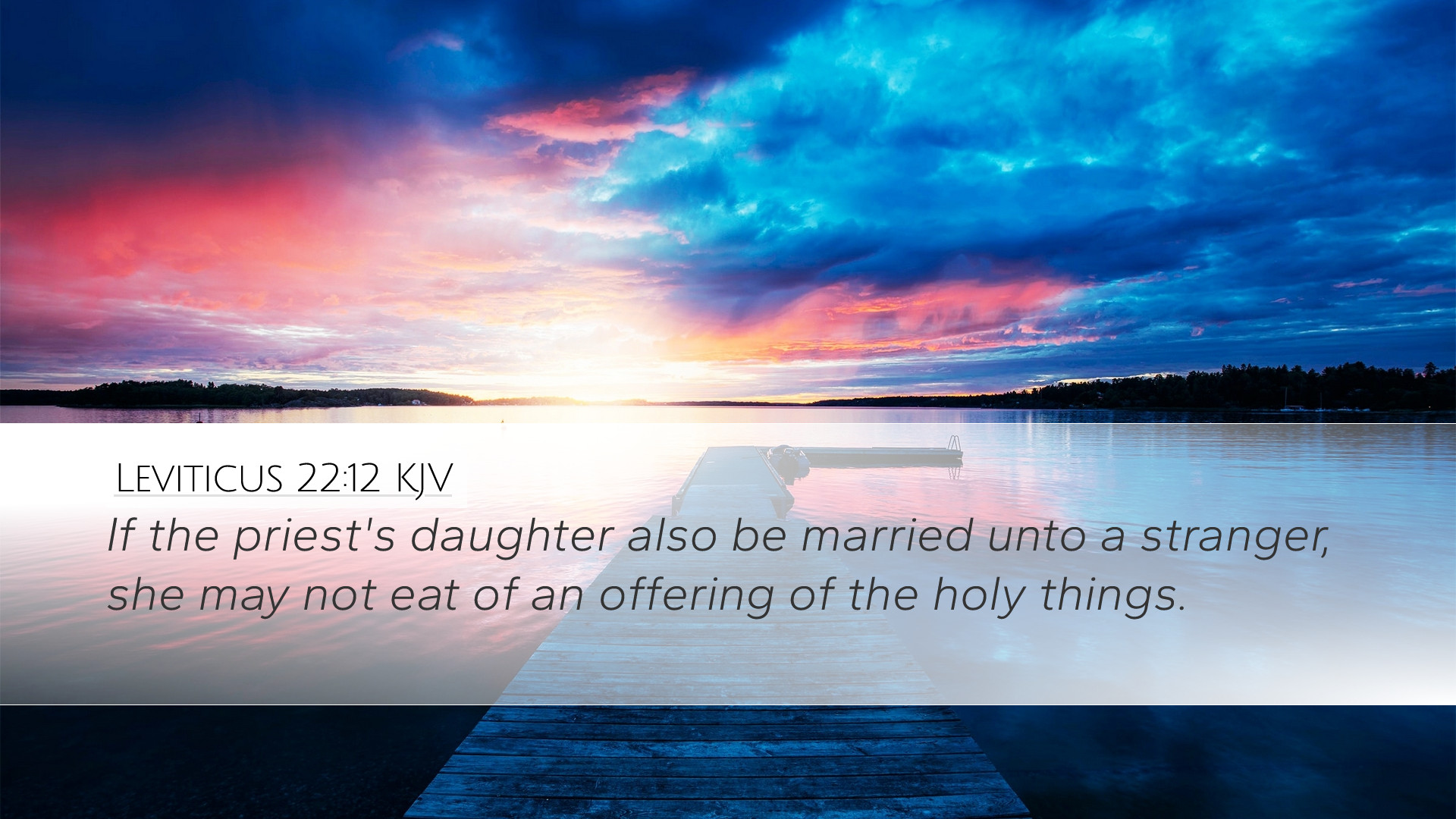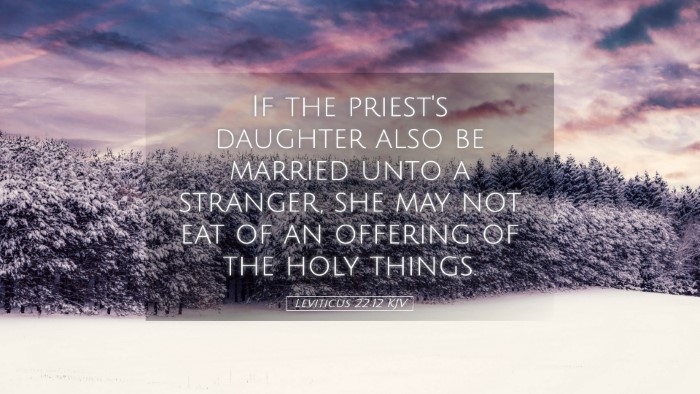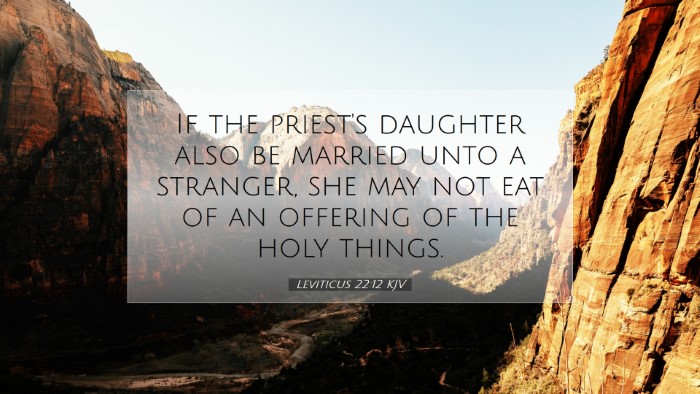Commentary on Leviticus 22:12
Verse Context: Leviticus 22:12 states, "If the priest’s daughter is married to an outsider, she may not eat of the holy offerings." This verse addresses the regulations regarding the consumption of holy offerings and highlights the importance of maintaining the sanctity of the priestly household and its offerings.
General Overview
The book of Leviticus is primarily concerned with the laws and regulations governing worship and the holiness required of the Israelite community. In this context, Leviticus 22:12 serves as a specific instruction regarding the privileges and restrictions placed upon the priest's family, particularly concerning his daughter in relation to marriage and the holy offerings.
Insights from Matthew Henry
Matthew Henry emphasizes the religious duties that the priest's family must observe. He notes that being a part of a priestly lineage carries a responsibility that includes an adherence to laws about what is holy. Henry points out that marrying outside the priestly line does not only change the familial connections but could suggest a change in value placed upon the holy things of God. The priest's daughter, upon marrying an outsider, loses her connection to the priestly rights related to offerings.
- Holiness in Relationships: Henry elaborates on how the sanctity of relationships, particularly those connected to service in the temple, reflects the nature of one's commitment to God.
- Consequences of Neglect: The restriction emphasizes the consequence of relinquishing spiritual privileges that come from one's direct lineage; it is not merely about dietary laws but about separateness from holy things.
Insights from Albert Barnes
Albert Barnes provides a clear explanation of the implications of this verse regarding the priest's daughter's relationship status. He discusses how the sanctity and exclusivity of the offerings are safeguarded even within the family of priests. Barnes notes that the offerings given to God are to be treated with the utmost respect and care, emphasizing the spiritual significance of one's associated family and marital ties.
- Defining Privileges and Limitations: Barnes conveys that the specific command restricts individuals who, by nature of their marriage (an outsider), do not maintain the requisite holiness expected for those connected to the priestly line.
- The Importance of Lineage: He also touches on the idea that lineage and family heritage hold significant weight in establishing the holy nature of offerings, showcasing God’s design for maintaining purity within the priesthood.
Insights from Adam Clarke
Adam Clarke adds depth to the understanding of the verse by interpreting the cultural implications surrounding the priest's household. He emphasizes that the priest’s daughter is considered set apart for divine service, and her actions must align with the divine regulations to maintain that status. Clarke notes the seriousness of engaging with those outside Israel's covenant community, reinforcing the principle that the integrity of God’s worship is of paramount importance.
- Cultural Context: Clarke explains that this provision serves to educate the community about the protection of holy things and the necessity of distinguishing between sacred and secular. This boundary protects the priestly family and their privileges.
- Maintaining Distinction: The verse reiterates how God desires His people to remain distinct from others, particularly in family and worship practices, reinforcing a commitment to purity in both thought and action.
Theological Reflections
The dialogue surrounding Leviticus 22:12 invites deeper contemplation regarding the relationships believers cultivate and the implications of those relationships on their spiritual walk. The combined insights from these theologians remind pastors, students, and scholars that the call to holiness is an integral part of the believer’s identity, especially for those in positions of spiritual leadership.
- Holiness as a Communal Value: This verse serves as a reminder that holiness is not an individual endeavor but a communal value that extends to family, relationships, and community.
- Grace and Inclusion: This passage also invites discussion on how grace operates within the New Covenant, as believers are called to be light and salt in a world of differing faiths and backgrounds, actively reflecting God’s inclusive love while maintaining their distinctiveness in worship.
Practical Applications
As contemporary readers of Scripture, it is essential to draw connections from Leviticus 22:12 to everyday practice. In considering the priest's daughter and her marital choices, one might reflect on their own connections and commitments within their communities.
- Community and Commitment: Evaluate how one’s relationships impact their spiritual journey and service in the church.
- Consider the Influence of Family: Recognize the significance of family backgrounds in shaping spiritual values and practices.
- Holistic Worship: Encourage a pursuit of holiness that permeates all aspects of life, recognizing that worship flows from a life set apart for God.


